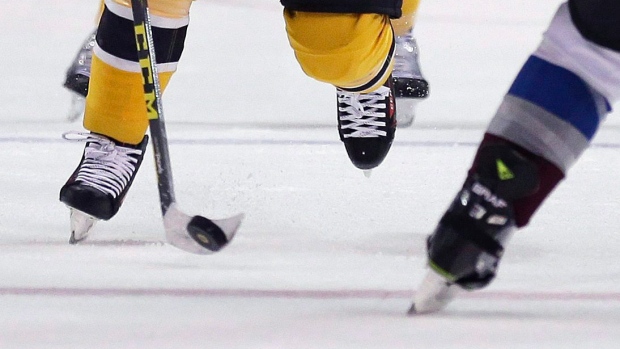“Oh wow, that player is a really great defenceman.” Yeah, but can they defend?
“Oh wow, that defenceman can really go with the puck.” Yeah, but do they know how to pass the puck and how to play in their own zone?
“Oh wow, that defenceman has great offensive instincts and transitions the puck very well.” Yeah, but would you put them out there when you needed to shut down the other team’s top line or in the last two minutes of a game up a goal?
There are more questions than answers right now with regards to what the hockey world want to see in a defenceman.
Can they skate? Can they think the game? Can they defend? Can they pass the puck?
Those are four questions that should be asked when evaluating and projecting any young defender. See how all that other peripheral bull shit seems to go away when the right questions are asked.
You can look at all the analytics and stats you want, can they skate, can they think the game, can they move pucks and can they defend? At the end of the day, it’s that simple. Playing defence isn’t a lost art, so why is the hockey world so driven to reinvent the position and all of the players that play it.

If any player can do all of the aspects mentioned above, it shouldn’t matter what size they are or how many points they can produce, if they can skate, think the game, move the puck and defend you will obviously have a great defensive prospect on your hands.
Those four critical aspects are the foundation to any quality defender.
Of course, you will have your elite level guys that are stronger in one category than the other, but things always seem to balance out for them when they get to higher levels of the game.
The four foundational pillars to becoming a solid defensive prospect need to be embraced and emphasized now more than ever because the meaning and role of a defenceman continues to drastically change.
Everyone talks about transitional D, but so many skate into trouble and turn pucks over. As a young defender, if you want to get noticed, take care of your own zone, work on your skating, mobility and pivots. Have a great stick, make good decisions, take good routes to pucks, and move the puck efficiently, that’s the difference between getting noticed and having an impact moving forward.
Don’t believe me, watch every interview with any up-and-coming defenceman and they will always say the exact same thing. It might be as hockey cliche as it gets, but it’s the truth.
“I have to make sure I take care of my own zone first.”
Some would say the “stay at home” defender is extinct, but there’s still tons of value in that role.
Every young defender wants to be an offensive defenceman like so and so, (insert new up and coming NHL defender here,) but they have no idea what it takes or the work that goes into getting to that point.
It just seems that more and more defencemen don’t understand the game or the position. In hopes of being that transitional offensive player they lose sight on what the essence of the position really entails.
Can they skate?
Can they think it?
Can they move the puck and can they defend?
Those are the real questions people should be asking when evaluating and projecting young defencemen.
You want to get noticed as a defender, play to your identity whatever that might be and for goodness sakes don’t be something you’re not. That doesn’t mean not to work on stuff or grow or develop into a better player, because that’s not what I’m trying to say. Young defender should take pride in or see value in closing the gap, being tough to play against, having an active stick, using their body position for leverage, play the position the right way and doing all of the little things right, because to be honest with you more and more young players aren’t.
Flash and dash get you noticed, but it might be for all the wrong reasons.
Don’t cheat offensively, everyone in the building knows what you’re trying to accomplish, let the game come to you, don’t force the issue, pick your places, keep it simple and solid. Always remember less is more, taking a hit to make a play is part of the position. If you don’t like the physicality of the position, perhaps it’s time to make a change. Making a quality first pass will take you farther than cheating offensively and trying to be something you’re not. Be effective, be efficient, but most of all have fun playing the game and position. It’s ok to be defensive, it’s ok to be offensive, it’s ok to be somewhere in between, playing defense shouldn’t be a lost art.
Bang on article.I see too many kids playing defence when they they should be a forward as that is their mindset ,hence like you said they make too many turnovers in D zone.
LikeLike
Hey David, Thanks for the comment and positive feedback, I really appreciate it
LikeLike
Great article, I see coaches continue to make these kind of key decisions by putting the wrong players out at a crucial moment in the game. This happens at a great degree with the AAA U15 and AAA U18 age group.
LikeLike
Hey Terry, Thanks for the positive feedback, I really appreciate it!
LikeLike
The Makar/Karlsson style defenseman is some of the sizzle NHL likes to sell. The steak of winning teams has more to do with the goalie and defence that bores the crowd.
LikeLike